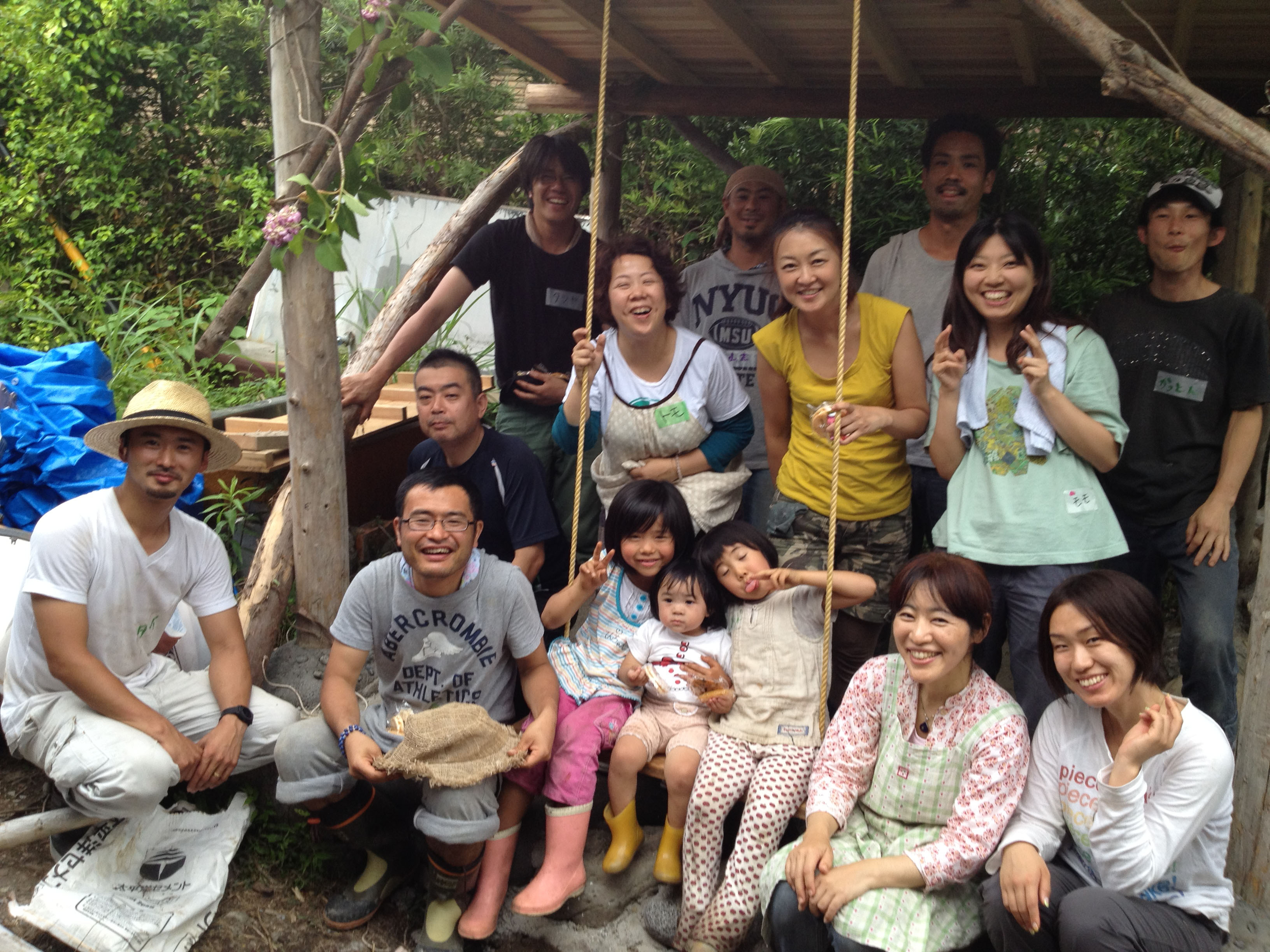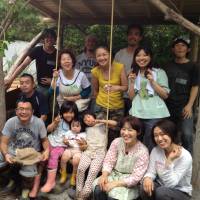For anyone who cares about nature — or their own future — Earth in the 21st century can be a worrying place to live. The planet is warming and climate-related disasters are growing more frequent; plants and animals are going extinct at rates not seen in 65 million years; and in many places, key resources such as water and topsoil are dwindling fast.
Against this backdrop, engaging with the green movement can feel like tumbling down a dark rabbit hole with nothing but apocalypse at the other end.
At a recent meeting of Transition Town Hamamatsu, an environmental organization in western Shizuoka Prefecture, however, gloom and doom were nowhere to be found. To the contrary: the atmosphere was cheerful, almost giddy.
It was a Tuesday night, and half a dozen members of the 3-year-old initiative had gathered at a home-turned-community-space in central Hamamatsu City. Cups of tea and the remains of a shared dinner littered a table. Kids were playing with a giant pink gecko soft toy. Adults were happily digging through a box of seeds to choose plants for a sustainable "forest garden" they'd started on a nearby abandoned lot.
Part of a growing international network of Transition Towns, the Hamamtsu organization and others like it throughout Japan aim to counter Earth's cascading environmental crises not through protest, but by nurturing home-grown solutions at the community level.
"Our goal is to transition from a society based on fossil fuels and a globalized economy to one where communities rely on local resources," explained Jun Omura, a lithe, 33-year-old yoga teacher who started this branch with his wife Tomoko and several friends.
"We're very optimistic," added Miki Sato, a young mother who is the secretary.
The Transition Town movement began in Kinsale, Ireland, in 2005 when students studying permaculture — a sustainable design system applicable to agriculture, town planning and much else — drew up an Energy Descent Action Plan to move their town away from reliance on fossil fuels.
The idea, originally in response to the threats of climate change and peak oil, resonated internationally. Today more than 1,300 Transition Towns in 44 countries are registered with Transition Network, a charitable organization based in Totnes, southern England, and many un-registered initiatives exist as well.
Japan's first Transition Town formed in 2008 in Fujino, Kanagawa Prefecture; today 48 groups are active nationwide, and some have linked with local governments to further their goals. Fundamentally, though, Transition Town is a voluntary, grassroots network that eschews both partisanship and political activism.
"Instead of demanding things from corporations and governments, we experiment on our own. If there's no nature in town, we'll make it, starting with tiny gardens on the corners of streets. If there aren't enough jobs, we'll create jobs," Omura said.
In Japan, concepts like local self-reliance and energy independence have become much more mainstream since the 2011 Tohoku earthquake, tsunami and nuclear disaster. Still, not everyone is ready to start building a new social and economic model, said Shunro Yoshida, co-chairman of Transition Japan, a nonprofit hub for Transition activities nationwide.
"Those of us who experienced the disaster and were awakened by it, we're pretty serious. But (the movement) hasn't spread as quickly as we had expected," he said.
In Hamamatsu, the Transition Town concept has catalyzed an explosion of activity. With about 350 members in 13 working groups, there's a constant lineup of garden workdays, sustainable building workshops, alternative-energy projects, lessons on hunting, fermentation and brewing — and all sorts of community events. Members also all gather together once a year to envision what they want their town to look like in 35 years and figure out the steps needed to get there.
One very popular project is a local currency started last year. Participants (about 60 so far) get a checkbook in which they write down services provided or received and their value — the idea being to keep the balance at zero by bartering with other participants. Sato, who helps run the project, has traded everything from home-grown vegetables and poster-design services to carpool rides and manga books.
In the past, such utopian projects often played out in communes or ecovillages isolated from mainstream society. What sets the Transition Town movement apart is its focus on transforming existing communities — even solidly industrial ones like Hamamatsu, which Omura jokingly calls "the Detroit of Japan."
"For me, it's about creating an abundant place for my children and their children to live," said his wife Tomoko. "It would be easy enough to do that by moving out to the middle of the countryside. But I glimpsed the possibility of realizing that vision in the place where I'm living now, and I thought I'd like to give that a try."



















With your current subscription plan you can comment on stories. However, before writing your first comment, please create a display name in the Profile section of your subscriber account page.